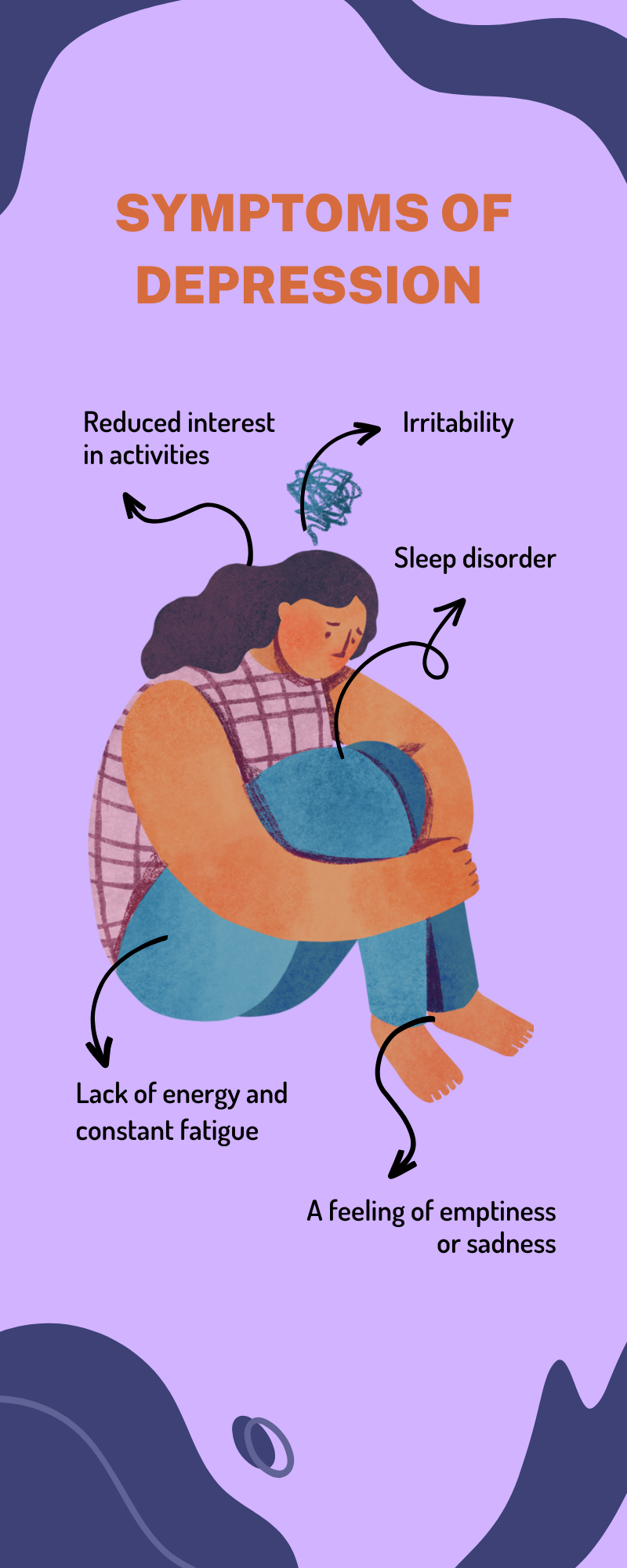
In the tapestry of human emotions, there are moments of joy, sorrow, and everything in between. Yet, for some, these emotions can become entwined in a relentless struggle that casts a shadow over their lives. Depression, a complex and often misunderstood mental health condition, is a topic that demands our attention and empathy. In this blog, we'll delve into the depths of depression, exploring its causes, symptoms, and strategies for overcoming its grip.
Depression is not a fleeting sadness; it's a pervasive feeling of despair that can impact every facet of a person's life. It affects thoughts, feelings, behaviors, and physical well-being. While its exact origins remain elusive, a combination of genetic, biological, environmental, and psychological factors contribute to its development.

Symptoms and Signs:
Recognizing depression is crucial for providing timely support. Common symptoms include persistent sadness, loss of interest in once-enjoyed activities, changes in appetite or sleep patterns, fatigue, feelings of worthlessness, and difficulty concentrating. It's important to remember that depression manifests differently in each individual, and not all symptoms may be present.
Breaking Down Stigmas:
Despite significant progress in mental health awareness, stigmas surrounding depression persist. Many still view it as a sign of weakness or believe that people should simply "snap out of it." Such misconceptions hinder open conversations and prevent those struggling from seeking help. The truth is that depression is a medical condition that requires understanding, compassion, and professional intervention.
Seeking Help:
If you or someone you know is battling depression, seeking help is a vital step on the journey to recovery. Mental health professionals, such as therapists, psychologists, and psychiatrists, are equipped to provide appropriate treatment strategies, which may include therapy, medication, or a combination of both. Remember, seeking help is a sign of strength, not weakness.
Self-Care and Coping Strategies:
While professional help is essential, there are also self-care strategies that can complement treatment. Regular exercise, a balanced diet, sufficient sleep, mindfulness practices, and engaging in creative or pleasurable activities can contribute to overall well-being. Connecting with friends, family, or support groups can offer a valuable network of encouragement.
Supporting Others:
If you know someone who is battling depression, offering support can make a world of difference. Listen without judgment, offer a helping hand, and encourage them to seek professional help. Your presence and understanding can create a safe space for them to share their struggles.
Depression is not a battle that should be fought alone. It's a challenge that requires collective empathy, understanding, and effort to overcome. By fostering an environment of open conversation, eliminating stigmas, and providing resources for seeking help, we can collectively work towards a world where those grappling with depression find the support they need to rediscover the light within themselves. Remember, every step taken towards mental health awareness and support is a step towards a brighter future for all.
MindCare Connect
@2023. All Rights Reserved.